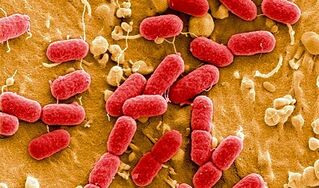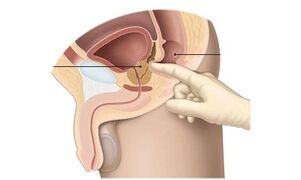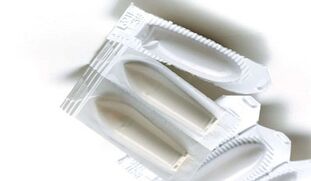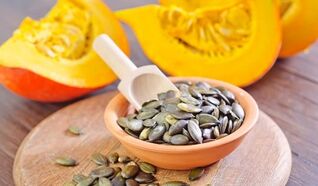There are two forms of prostatitis-acute and chronic. If the acute inflammation is treated quickly with antibiotics, chronic prostatitis will become a serious problem for the elderly, which will have a negative impact on the quality of life. Infection and congestion of pelvic organs can cause chronic prostatitis. The disease requires long-term and complex treatment.
Disease classification
There are two types of chronic prostatitis in men-congestive (bacterial, congestive) and infectious.
Chronic congestive prostatitis is the result of prostate dystrophy. This disease can develop due to heart failure or lack of sex.
Chronic nonbacterial prostatitis is characterized by moderately severe symptoms and the absence of acute pain syndrome. When the analysis was performed, no infectious agent was found in the secretions of the prostate, so the disease was called abacterial.
Infectious chronic prostatitis is the result of untreated bacterial inflammation. Due to prostate infection, the disease starts in an acute form. Due to the lack of proper and timely treatment, the disease has become a chronic disease. Chronic infectious prostatitis is characterized by periodic exacerbations.
Causes of chronic non-infectious prostatitis
Speaking of chronic prostatitis, the most common meaning is a non-infectious disease caused by hyperemia of the pelvic organs. This is due to violation of the nutrition of the prostate-blood circulation, lymphatic fluid flow, and prostate secretion flow out.
The form of this disease is directly related to lifestyle and is considered to be a disease of office workers. The main reason for the development of congestive prostatitis is lack of exercise.
Factors leading to the development of congestive prostatitis include:

- Sedentary work;
- Lack of regular exercise;
- Unbalanced diet;
- Obesity;
- bad habits;
- Varicose veins;
- Hemorrhoids;
- Irregular sex life.
The disease will develop under any circumstances and is accompanied by lower limb circulatory diseases. Due to the increased load on the waist and lower limbs, the metabolic process in this area is disturbed, so prostatitis often appears with obesity.
If you have to sit all day because of your specialty, you need to move at least at night.
Bad habits can trigger the development of prostatitis. Smoking destroys blood vessels and disrupts normal blood flow. Due to human physiological characteristics, this mainly affects blood circulation in the lower limbs and pelvic area.
Sexual life plays an important role in the function of the prostate. For men over 40, the best number of sexual intercourse per week is 3-4. Smaller amounts result in the outflow of secretions against the prostate, and larger amounts result in organ exhaustion.
Another cause of congestive prostatitis is heart failure. The disease is characterized by impaired blood circulation, including impaired blood circulation in the pelvic organs.
Reasons for the development of chronic infectious prostatitis
Chronic bacterial prostatitis is the result of untreated acute inflammation of the prostate. This disease is characterized by severe symptoms and pathogens found in prostate secretions.
The most common pathogens of infectious prostatitis:

- Escherichia coli and Pseudomonas aeruginosa;
- Staphylococcus and Streptococcus;
- Chlamydia;
- Ureaplasma;
- Trichomonas;
- Fungal flora.
Infection enters the prostate in three ways: through the blood, lymph, or urethra. The last path of pathogen penetration is effective against chlamydia, urethritis or trichomonas infection.
Reasons for the development of the disease:
- Decreased immunity;
- Severe hypothermia;
- pressure;
- Long-term antibiotic treatment.
Conditional pathogenic bacteria always exist in the body, and only a strong immunity can activate them.
Chronic bacterial prostatitis develops from an acute form under the following conditions:
- The focal point of chronic infection;
- Wrong choice of antibiotic treatment;
- Delay in terminating treatment;
- Weakened immunity.
In most cases, it is due to improper treatment that causes the chronic development of the disease. This can happen if antibiotics are not properly formulated or self-medicated. Stopping antibiotics when you feel better means that the pathogen will not be completely destroyed. In this case, any decrease in immunity or body temperature will lead to the redevelopment of the disease.
The most difficult to treat is fungal prostatitis caused by yeast-like bacteria. This pathogen rapidly develops resistance to antifungal drugs, which makes treatment more difficult and increases the risk of chronic diseases.
The symptoms of this disease
In chronic prostatitis, the symptoms are mild, but the disease worsens when the immune system is weakened or under stress.
The most common symptoms of chronic prostatitis in men are:
- Urination disorders;
- The prostate is heavy;
- Decreased effectiveness;
- Urged to go to the toilet at night.
As chronic prostatitis worsens, pain in the bladder and perineum appears. The frequency of urging the toilet can reach 10 times per hour. At the same time, the urine flow is weak and it is necessary to tighten the muscles to urinate, but the process itself will not bring relief, and repeated impulses will appear after a few minutes.
The symptoms and treatment of chronic prostatitis largely depend on the form of inflammation. With congestive prostatitis, erectile problems are common. This is due to blood circulation disorders. Ejaculation can occur very quickly, or it may not occur at all due to thickening of prostate secretions.
With infectious inflammation of the prostate or chronic bacterial prostatitis, pain during urination and burns in the urethra after ejaculation may occur. These symptoms are accompanied by the irritation of the urethral mucosa by the pathogenic factors contained in the prostate secretion.
Prostatitis and erectile dysfunction
 Eyes cannot see the inflammation of the prostate. The symptoms of chronic prostatitis have no visible manifestations, but refer to internal diseases. One of the characteristic symptoms of the disease is weakened erections.
Eyes cannot see the inflammation of the prostate. The symptoms of chronic prostatitis have no visible manifestations, but refer to internal diseases. One of the characteristic symptoms of the disease is weakened erections.
The erectile dysfunction of congestive prostatitis develops in several stages. The disease itself can last for a long time without obvious symptoms, and signs of prostatitis only appear when the immune system is strongly weakened.
Erectile changes may suspect bacterial inflammation of the prostate. At the beginning of the development of the disease, the effectiveness will increase. The man was quickly aroused, but the ejaculation also came quickly. This is due to changes in the viscosity of prostate secretions. You may feel discomfort during ejaculation, but the pain is characteristic of infectious rather than congestive prostatitis.
This can cause many psychological problems and aggravate the course of the disease. Fear that sexual partners will exacerbate erectile dysfunction due to blood flow problems, which may lead to impotence in the context of prostatitis.
Urinary system diseases
Urodynamic problems have been observed in all forms of prostatitis.
Chronic bacterial inflammation is characterized by urgency at night. It is caused by swelling of the prostate, which increases at night. Urine pressure is weakened, and pelvic floor muscles need to be tightened to urinate. At the same time, the bladder feels heavy and full, and periodic cramps may occur. Due to frequent use of the toilet at night, sleep problems and insomnia occur. All of these will affect people's psychological state and further aggravate the progress of the disease, because under the background of stress, the immune system decreases and the metabolic process slows down.
Men often complain of lower abdomen cramps, which can be explained by the increased tone of the bladder muscles. Usually, the severe symptoms of prostatitis cause a decrease in immunity. Without aggravating the condition, there may be no pain syndrome at all.
Congestive prostatitis is characterized by severe swelling of the prostate. The outline of the organ becomes blurred, and the prostate itself swells and increases in size. In this case, the rectum may feel full and discomfort during bowel movements. Urination problems are caused by the swollen prostate compressing the urethra.
Why is prostatitis dangerous?

The consequences of chronic prostatitis depend on several factors:
- The age of the patient;
- The severity of the symptoms;
- Current duration;
- Effectiveness of medication.
The longer a person with chronic prostatitis lives, the more serious the consequences of the disease. In most cases, the urinary system is affected. With bacterial prostatitis, kidney infection may occur when urine returns. This is due to pathogens entering the urethra during ejaculation.
Continuous irritation of the bladder and urethra can cause inflammation. In the context of prostatitis, various types of cystitis and urethritis are often diagnosed.
In chronic prostatitis, the consequences affect the mental and emotional state of men. Violation of potency, the urge to use the toilet frequently, bladder discomfort-all these can lead to increased pressure. Prostatitis may be an indirect cause of neurosis and depression.
Persistent discomfort, violation of efficacy, inability to fall asleep-all of these can greatly affect the quality of life.
Disease diagnosis
If prostatitis is suspected, consult a urologist or andrologist. Use the following diagnostic methods for diagnosis:
- Prostate rectal palpation;
- Ultrasound and TRUS of organs;
- Kidney ultrasound;
- Analysis of prostate secretion;
- PSA blood test.

After palpating the rectal organs, determine if further examination is required. This process is also called prostate massage. The doctor inserted two fingers into the rectum opening and felt the prostate. Changes in organ structure, tissue heterogeneity, and prostate contour prove inflammation. During the massage, the organs are stimulated and the secretions of the prostate are secreted from the urethra. Collect it for further analysis. Analysis of prostate secretion shows:
- The number of lecithin particles;
- White blood cell and red blood cell count;
- The presence of pathogenic microorganisms;
- The presence of fungal flora.
This can not only determine the nature of the inflammatory process, but also determine the pathogen of infectious prostatitis.
Perform ultrasound and TRUS instead of excluding stones in the prostate instead of diagnosing prostatitis, because this method is not very informative compared to secretion analysis.
A PSA blood test is required to rule out prostate cancer. It can also detect inflammation or prostate adenoma. The treatment of chronic prostatitis depends on the test results and the type of inflammation.
Treatment function
The treatment plan for chronic prostatitis is a combination of medicine, physical therapy and folk remedies. Changes in lifestyle provide supplements for treatment-adjust menus, give up bad habits, exercise regularly and have sex.
It is important to understand that for chronic prostatitis, treatment takes at least six months. In addition to drugs to relieve inflammation, men also receive long-term rehabilitation, which is necessary to normalize prostate function.
Drugs
How to cure chronic prostatitis depends on the form of the disease. Medications for chronic prostatitis include:
- antibiotics or anti-inflammatory drugs;
- Rectal suppositories to normalize nutrition;
- Immunostimulant and general health improving agent.
For chronic prostatitis in men, antibiotics are used, but only if it is an infectious inflammation of the prostate. How to treat male infectious prostatitis depends on the pathogen and the success of the previous treatment process. In acute bacterial inflammation, macrolide antibiotics are prescribed in most cases. They effectively inhibit the activity of pathogens and have a wide range of action. In the case of non-compliance with the treatment plan or improper drug selection, the microorganisms that cause inflammation will quickly develop resistance to macrolide drugs, which to a large extent leads to the transformation of the disease into a chronic form.
Fluoroquinolones are effective antibacterial agents for prostatitis caused by microorganisms. They have obvious anti-inflammatory activity against a variety of pathogenic microorganisms.
Although there are no natural analogues of fluoroquinolones, which is the cause of the lack of resistance of pathogenic microorganisms to the action of drugs, it is still necessary to carefully follow the treatment plan chosen by the doctor. Otherwise, the drug will be ineffective and antibiotic treatment must be repeated.

Antibacterial drugs and tablets are not used to treat chronic non-infectious prostatitis. For congestive prostatitis, inflammation is not caused by microorganisms, but caused by malnutrition. Therefore, antibiotics should not be used for treatment. They switched to anti-inflammatory drugs. They are used short-term to reduce inflammation and swelling. The medicine is prescribed in the form of suppositories or injections. Treatment takes an average of one week and the drug is administered intramuscularly and rectalally at night or once a day. For severe inflammation, it is possible to use this medicine twice a day.
Anti-inflammatory drugs are not antibiotics. The tablet has been successfully used to relieve the inflammatory process of non-infectious or congestive prostatitis. On average, doctors prescribe 2 tablets a day for 5 days, and then transfer patients to receive phytoremediation drugs that can improve prostate nutrition.
In the case of severe urination disorders, supplemental treatment with drugs in the alpha blocker group can be used. These drugs relax the bladder and reduce muscle tone, thereby allowing urine to flow normally. This group of drugs is taken one tablet per day for a short course of treatment, and treatment with alpha blockers rarely exceeds one week.
After the inflammation ceases, drugs that normalize the nutrition of the prostate can be used to treat congestive (cognitive) and infectious prostatitis. Medicine helps:
- Reduce inflammation;
- Relieve pain syndrome;
- Normalization of urination;
- Increased effectiveness.
For chronic prostatitis, use these drugs for at least two weeks. They come in the form of rectal suppositories. The recommended dose is one candle every night.
It is recommended to usepropolis suppositories to restore local immunity. They can reduce inflammation, improve blood circulation and the outflow of prostate secretions, and can also significantly improve immunity and prevent prostatitis from worsening. The medicine comes in the form of small suppositories and is injected into the rectum at night.
In addition, your doctor may recommend fisheye lens suppositories. They reduce inflammation and reduce swelling of the prostate.
It is recommended to use echinacea extract-based preparations as a general supplement for prostatitis. They strengthen the immune system and prevent prostatitis from getting worse. In the case of neurosis and insomnia in the context of prostatitis, the doctor may recommend sedatives.
Physical therapy treatment of chronic prostatitis
The cause of chronic prostatitis is poor blood circulation in the pelvic organs. In order to speed up the recovery and recovery of prostate nutrition, physiotherapy methods are widely used:
- Magnetic therapy;
- Electrophoresis;
- Shockwave therapy;
- Acupuncture.
Acupuncture (acupuncture) and hydro-ech therapy (hand and foot therapy) are different from non-traditional methods.
There are many home physiotherapy methods. The most popular are special equipment. They produce an alternating magnetic field, which has a positive effect on the metabolic process and eliminates the congestion of the pelvic organs.
Darsonvalization can also be used at home. This is a microcurrent effect, which can improve metabolic processes. You can buy equipment for home treatment at any medical equipment store, but it is recommended that you consult a doctor first.
Prostate massage is used to treat congestive prostatitis. It is performed by experts from medical institutions. Stimulating the organs can eliminate edema and discomfort, and can also reduce stagnation of prostate secretions. The treatment process includes 10-15 procedures.
Folk remedies
Whether to treat chronic prostatitis depends on the range of treatment measures taken. Traditional medicine will help to supplement medical treatment.

Homemade suppositories are used to relieve prostate inflammation. To prepare candles, you will need 200 grams of any fat base and 40 ml of propolis extract. Melt the base in a water bath, slowly pour the propolis into it, stirring constantly. When the product gets a uniform color, it is poured on plastic wrap and packaged in the form of sausage. Materials should be refrigerated for one hour to cool down. After the product has cooled, use a knife to cut it into equal torpedo-shaped pieces, about 5 cm in length and 2 cm in diameter. These candles should be individually packaged and stored in the refrigerator. The recommended dose is a suppository that enters the rectal opening before bedtime. The treatment time is 2-3 weeks.
You can also use pumpkin seed oil and honey to make candles. The ratio is 200 grams of alkali, 50 ml of oil and 3 tablespoons of honey. As a base, you can take beeswax, lanolin, and cocoa butter. This suppository can reduce inflammation, improve prostate function and improve immunity.
In order to treat chronic prostatitis at home, you can use various infusions and decoctions. Parsley juice is one of the most effective remedies. You must take 3 tablespoons every day.
Traditional medicine recommends eating 30 grams of pumpkin seeds per day. They contain many nutrients necessary for the normal function of the prostate.
Another effective treatment is to mix pumpkin seeds, walnuts and honey. To prepare the medicine, you should take 100 peeled seeds and the same number of walnut kernels, put them in a convenient container, and pour 500 ml of honey. Place the product in the refrigerator for 4 days for infusion, and then take 4 tablespoons a day.
Surgical treatment
Whether chronic prostatitis can be cured permanently depends on the severity of the disease and the age of the patient. As the condition gets worse, you must continue to take the medicine.
Surgical treatment of prostatitis is not performed in most cases. Maybe use a fundamental measure-completely remove the prostate. This type of surgery is performed only when the prostate is unable to perform its function due to chronic inflammation and medical treatment is ineffective. Moreover, the resection of the prostate is performed under the risk of developing oncology.
Interestingly, the effects of prostatitis are usually observed in elderly people over 65 years of age. In this case, many difficulties will be encountered in treatment:
- Contraindicated drugs;
- has many side effects.
Many men who have had prostatitis for more than 10 years insist on undergoing surgery. This is usually related to poor drug tolerance and a large number of side effects. The doctor said that surgery is a last resort, and the correct method can be used to cure prostatitis through conservative methods.
Prevention and prognosis
After clarifying what chronic prostatitis is in men and its dangers, a question immediately arises, that is, whether the disease can be completely cured.
The patient’s testimony shows that chronic prostatitis can be cured, but it takes a long time. The treatment process takes six months or more on average. The urologist agrees that proper treatment, lifestyle changes and a balanced diet will help eliminate inflammation.
Men who do not follow the doctor’s advice but are treated on the advice of friends most often experience aggravated and recurrent inflammation after long-term remission. It is important to understand that the success of treatment depends on the correct choice of drug treatment. The signs of chronic prostatitis aggravate or show up again:
- Non-systemic drug intake;
- not following the doctor’s advice;
- Stop treatment after the first improvement;
- bad habits;
- Lack of physical exercise.
Self-selection of drugs usually leads to a decrease in happiness. This is especially true in the case of infectious inflammation when patients independently choose antibiotics without testing.
A common mistake made by men is to stop treatment at the first improvement. In this case, the inflammation will not go away, only temporarily. With reduced immunity or hypothermia, the disease will feel it again.
In addition to medication, prostatitis also requires lifestyle changes. The important thing is to quit bad habits, restore nutrition, and start exercising. For prostatitis, yoga, exercise therapy, and swimming are recommended. Any exercise involving the pelvis will benefit. Men suffering from this condition, especially those who are sedentary, should exercise for 10 minutes a day and complete exercise several times a week. In addition, in the treatment of chronic prostatitis, it is necessary to have sex, because regular ejaculation helps reduce prostate edema.
The success of prostatitis treatment depends on timely diagnosis. Therefore, if you find urination problems, you should consult a urologist as soon as possible.






























